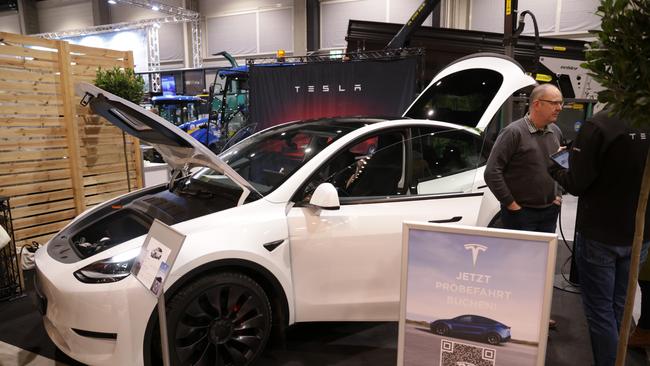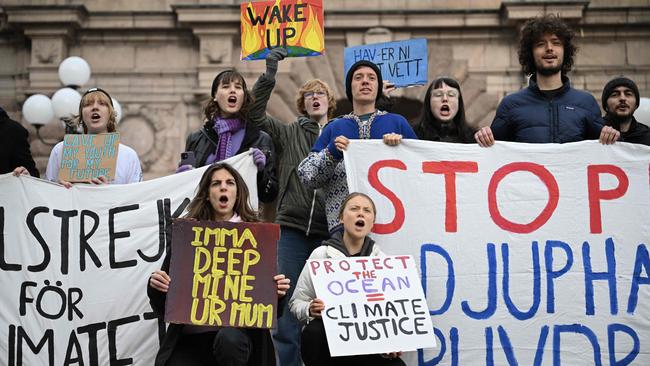James Morrow: Gap between haves and have nots is widening
Some 77 per cent of the top one per centers and 89 per cent of Ivy League graduates said they would support “the strict rationing of petrol, meat, and electricity” to fight climate change.

Opinion
Don't miss out on the headlines from Opinion. Followed categories will be added to My News.
An extraordinary study was released last week in the United States that goes a long way towards explaining the present political moment not just in the US but around the world.
In short, it confirmed what many of us have long suspected.
Namely, that so-called elites – those with America’s top incomes or with degrees from the country’s “best” universities – have a very different vision of the world than everybody else, and they want to use the power of the state to enforce their will.
Conducted by Rasmussen for the Committee to Unleash Prosperity, the survey polled graduates of top Ivy League and other elite private universities as well as “one percenters”, namely high-income residents of dense urban postcodes.
What the poll found was startling if not surprising.
Climate, naturally, was a top concern, though whether this was because those surveyed wanted to save the planet or just boss other people around remains an open question.

Some 77 per cent of the top one per centers and 89 per cent of Ivy League graduates said they would support “the strict rationing of gas (petrol), meat, and electricity” to fight climate change.
Drilling down, similar numbers said would take an axe to ordinary individuals’ ability to own gas stoves, petrol engines, 4WDs, or to make non-essential journeys by air or even operate airconditioning in their private homes.

These are the same demographics, of course, who use electric vehicles and slick induction cooktops as class markers and have no qualms about sneering at those who drive “oversized” utes and 4WDs.
Drilling down, among the supposedly top tiers of American society, freedom in general is in the crosshairs.
Nearly half - 47 per cent - of “one percenters” and 55 per cent of Ivy League graduates said people have too much of it (just 16 per cent of “normal” Americans agreed).
Naturally, this split between those who would boss others around and those who just want to be left alone helps drive Donald Trump’s popularity in the US, where hectoring progressive Democrats seem to look daily for new ways to meddle in people’s lives while at the same time enforcing the correct opinions about what to think.
While Australian populism has remained more muted, there is no doubt that local elites have a lot in common with their American counterparts.
Anyone who lived through Covid knows that Australians, no matter their class, are — shall we say — somewhat more sceptical of the very idea of liberty than Americans.

And of course there is no shortage of Australians hoping to use climate, health, or other concerns of the day to shape the way we live.
Dutch sustainable transport professor Paul Peeters was recently quoted in the local press telling Australians that “we need an international body that governs the growth of aviation that actually stops it for the next couple of decades.”
People should not travel as far – tough luck for Australians wanting to hit the US or Europe –as they used to, he said, adding that airfares will have to triple by 2050 from their 2019 levels to wean us all off flying.
(Naturally, this excludes the private jet set who will just have to cop the higher avgas bills to attend Davos and the latest COP summit).
Of course, it is also important to remember that this is nothing new.
Remember that the sort of people who get terribly offended when someone suggests people should be allowed to think gas stoves are better or petrol engines more fun, have been with us since the dawn of time.
Long before global warming, so called sumptuary laws have been brought in by elites to regulate the lifestyles of more common folk in the name of saving souls or society.
Ancient Spartans were barred from owning furniture made with any tools more sophisticated than a saw and axe lest luxury make them soft.

Rome had a whole series of laws dictating who could wear clothes made of what cloths, how big a party you could hold, and even what foods you were allowed to be served.
It’s fairly certain that the ancient world would not have looked too kindly on Instagram poseurs knocking back caviar bumps in the eastern suburbs.
Later, in Europe, the story was the same.
French and English kings both made rules about what people were allowed to eat and drink up and down the line.
Edward II issued a proclamation against nobles serving an “outrageous and excessive multitude of meat and dishes” because “persons of inferior rank (were) imitating their example”.
In Renaissance Florence, a charismatic friar named Savonarola convinced everyone to pile their paintings and tapestries and musical instruments in the square and set them alight to save themselves from sin.
And five or so centuries later, a Swedish schoolgirl would encourage people to do much the same, virtually, with her challenge “how dare you?”





